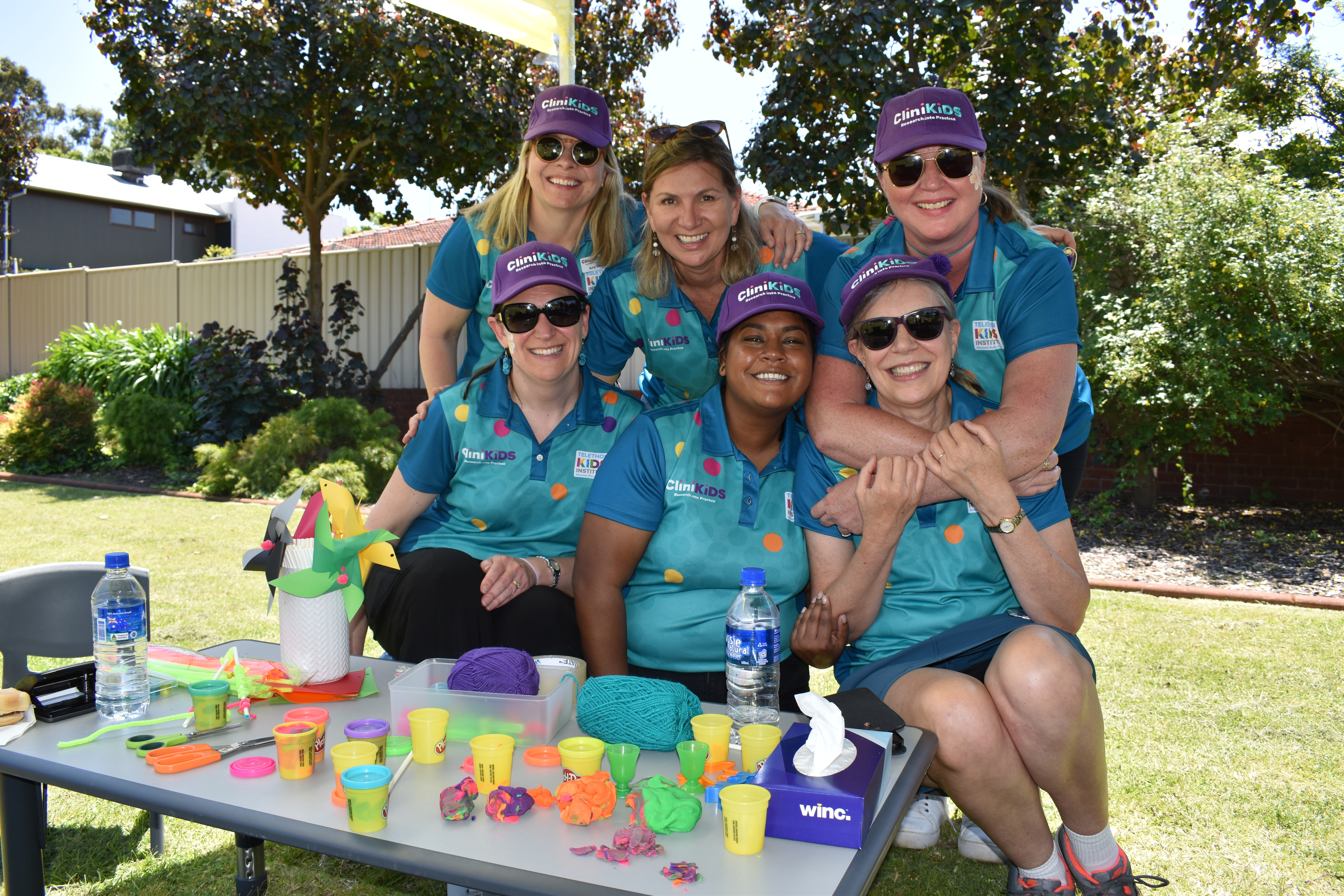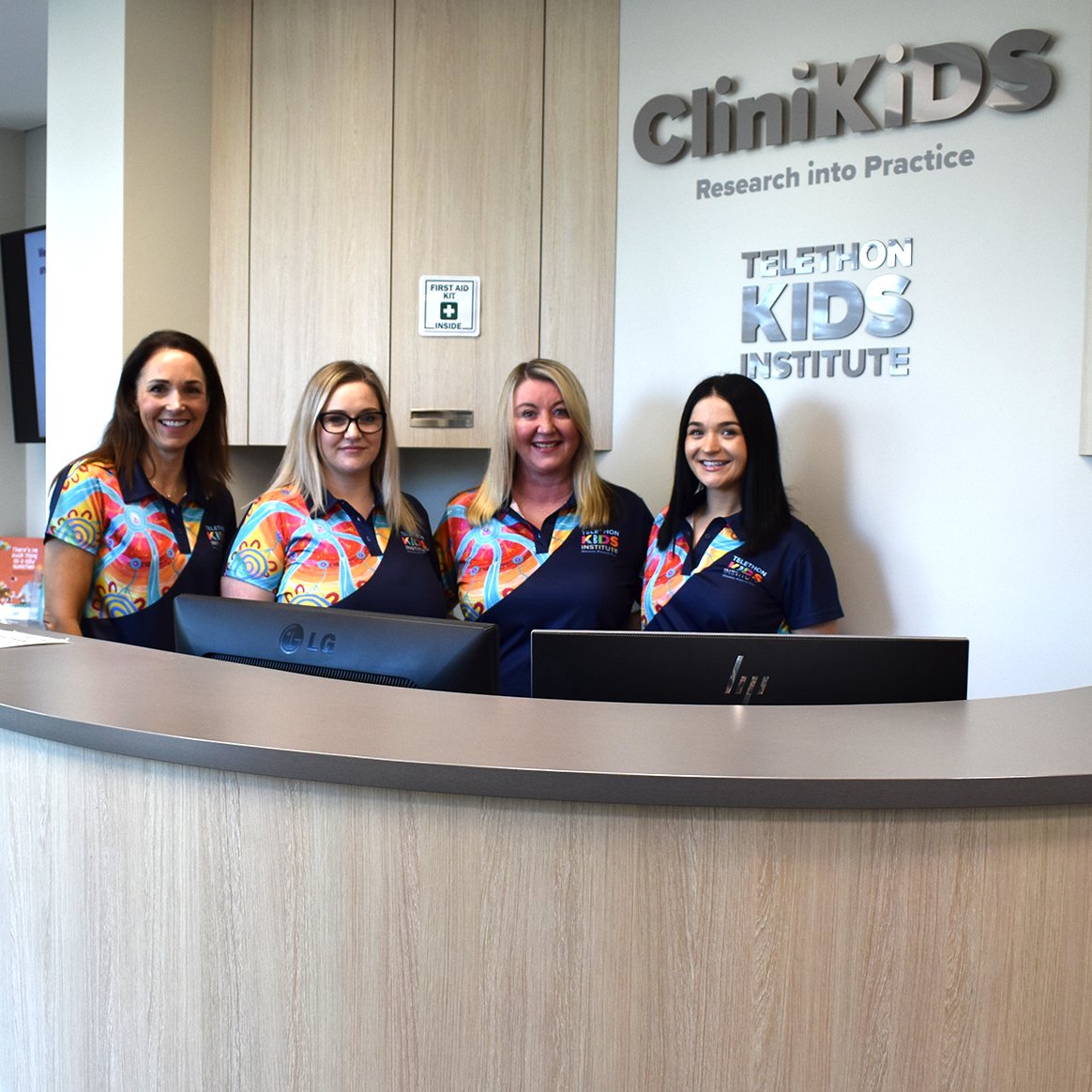Search

CliniKids held its inaugural Frangipani Family Day recently – an event organised to honour the wonderful contribution of its much loved and dearly missed colleague, the late Kate Sorensen.

The Client Support Team at CliniKids has some new faces! Nicki and Amy join our lovely Tracy.

Meet Leah – the latest addition to the CliniKids team. We asked Leah, our new Operations Manager, a couple of questions to get to know her.

Our team is comprised of well experienced clinicians who can support your child and family.
By fundraising, you’re helping raise awareness and provide funds to support CliniKids and the work we do with autistic children. There are lots of ways to fundraise, online and offline.
Contact us If you have any questions about getting started, please contact our giving team. We're happy to help! +61 8 6319 1333 giving@
You're now removed from all The Kids Research Institute Australia marketing email lists

Embrace @ The Kids Research Institute Australia is Western Australia’s first research collaboration devoted to the mental health of infants, children and young people ages 0-25.

As WA's first research collaboration dedicated to mental health, we work across The Kids Research Institute Australia and beyond to do the research that the community wants to see happen.
